Our favourite places to stay on this sleepy Cebu island.
How a Filipino Made His Dream of Moving to South Korea a Reality
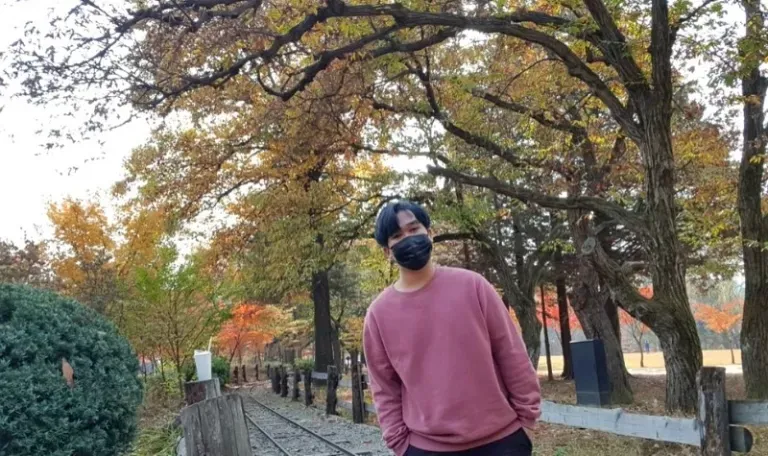
South Korea is a leading tourist destination for travellers everywhere, but have you ever considered living and working there? For an insider’s glimpse into what it’s like to move to South Korea, we talked to Kevin, a Filipino who has been living in Seoul since Aug 2020. His first visit to the country was during the autumn of 2017. Three years later, he’s now fully settled into life as a local, working as a content marketer for a tour and activity reservation company in Seoul. His experiences offer a timely perspective of working and living in South Korea as a young person, and how we could make that happen too.
Also read: 18 Career Paths That Will Open You Up to Travel Opportunities
Applying for a work visa for South Korea
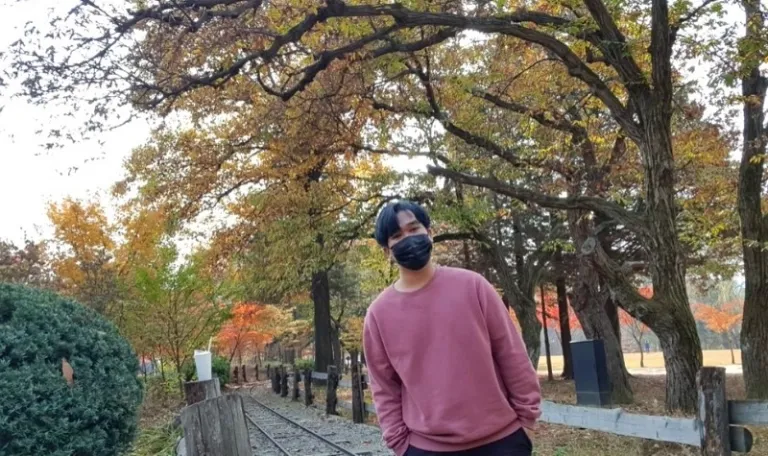
Kevin had to go through two processes: first, his job application and interview; and then, the application for his work visa. “Applying for the job was straightforward. I only did one Skype interview,” Kevin says. “The real work is getting the visa, which is a process that involves me, the employer, Korea’s Ministry of Foreign Affairs, the Philippine Department of Foreign Affairs, the Philippine Embassy in Korea, the Embassy of Korea in the Philippines, and the POEA [Philippine Overseas Employment Administration].”
With all the paperwork and coordination involved, it took six months for Kevin to acquire his work visa. What’s his advice for people who are thinking of working in South Korea? “If you’re already applying for your visa, just be patient. I wish someone told me this while I was going through the process, but if you ever get frustrated by the long wait, just always think about the reason why you’re doing this,” Kevin says.
Finding affordable housing in South Korea
Along with the high cost of living, one of the challenges of moving to South Korea is finding an affordable place to stay. When Kevin had to look for an apartment in Seoul, he encountered two unique housing rental systems he could choose from.
“In Korea, they have two systems: jeonse and wolse. The first is jeonse, which requires you to put down a hefty sum of money called ‘key money’ as payment for the entire contract period.” There’s no monthly rent. For a 2-year lease, it’s usually ₩30,000,000–100,000,000 (S$36,468–S$121,550), depending on the apartment and location. The other option is wolse, which is more affordable and flexible. The key money required is ₩5,000,000-20,000,000 (~S$6,118–S$24,471), but you’ll have to pay rent, which is around ₩500,000–1,500,000 per month (~S$612–S$1,835).”
How the workplace culture is changing in South Korea
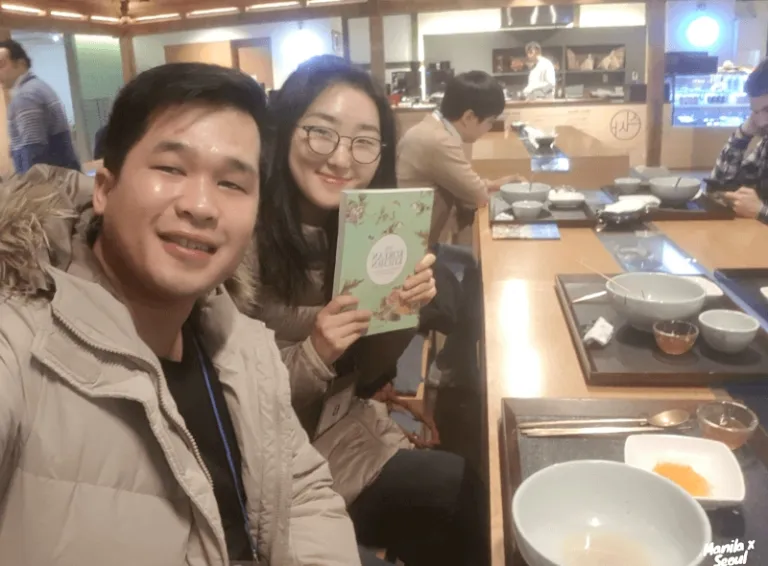
Many blogs will tell you that the workplace culture in South Korea is defined by a hierarchical corporate structure, strict rules of conformity, and a rigorous work ethic that calls for working overtime. But as younger generations of workers take up more positions in Seoul’s offices, the working culture in South Korea — typically singled out for its demanding “pressure-cooker” environment — is gradually changing and making room for healthier work-life integration.
Kevin experienced this for himself when he arrived in Seoul to start his new professional life. “Before coming to Seoul, I’ve always thought that the general work culture involves crazy long work hours. I’ve read a lot of articles saying that many people work 55-70 hours a week (voluntarily or otherwise) to show their diligence and commitment to the company,” Kevin says. “However, this has changed recently. Many companies are now encouraging employees to pursue a work-life balance.”
“I’ve read many blog posts from other expats saying that you’re expected to come to work 10-15 minutes before or you can’t leave the office before your manager does. This was never the case for me, and some of my colleagues said that work expectations aren’t the same as before. These things may still apply to some, so I wouldn’t call it a misconception entirely, but I do know that the culture is changing,” Kevin says.
Time is precious in South Korea
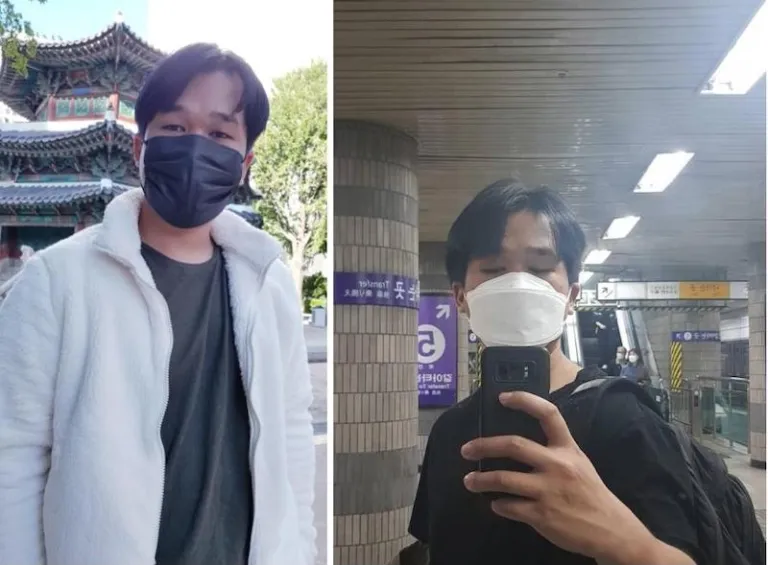
What Kevin loves most about his life in Seoul is how it frees him up to do multiple activities in one day. “What I love about Korea, and this mostly applies to Seoul, is that people can get so many things done without feeling rushed. It’s like I’ll be working the whole day in the north, and then I’ll go meet someone in the south for dinner, and I’ll still have time to work out and do grocery shopping before I call it a day. It’s a very efficient city with a fast-paced lifestyle, and I feel like there’s really no wasted time,” Kevin says.
Learning the Korean language is a must
Nevertheless, there’s one crucial factor about working in South Korea that must always be considered: the language barrier. When asked about his advice for people who are considering working in South Korea, Kevin told us: “Learn the language — this is very important. Korean companies require people to speak their language, and the good news is that these days, finding online resources has never been easier and affordable.”
Also read: All The Best Apps and Online Courses for Korean Language Lessons
Dating culture in South Korea: What they don’t tell you in K-dramas
Sorry to burst everyone’s bubble, but meeting your oppa might not be exactly like how it happens in Korean dramas. In South Korea, Kevin learned that blind dating or matchmaking is a popular way to meet your significant other.
“Most Koreans find their boyfriend or girlfriend (eventually spouse!) through blind dates or sogaeting, which is arranged by a friend or a colleague,” Kevin says. “Moving from the first date to being official also happens fast, like [two to three] weeks! K-dramas and movies don’t usually show this, but this is one part of the culture that I don’t think many people know about.”
Finding your community in foreign soil
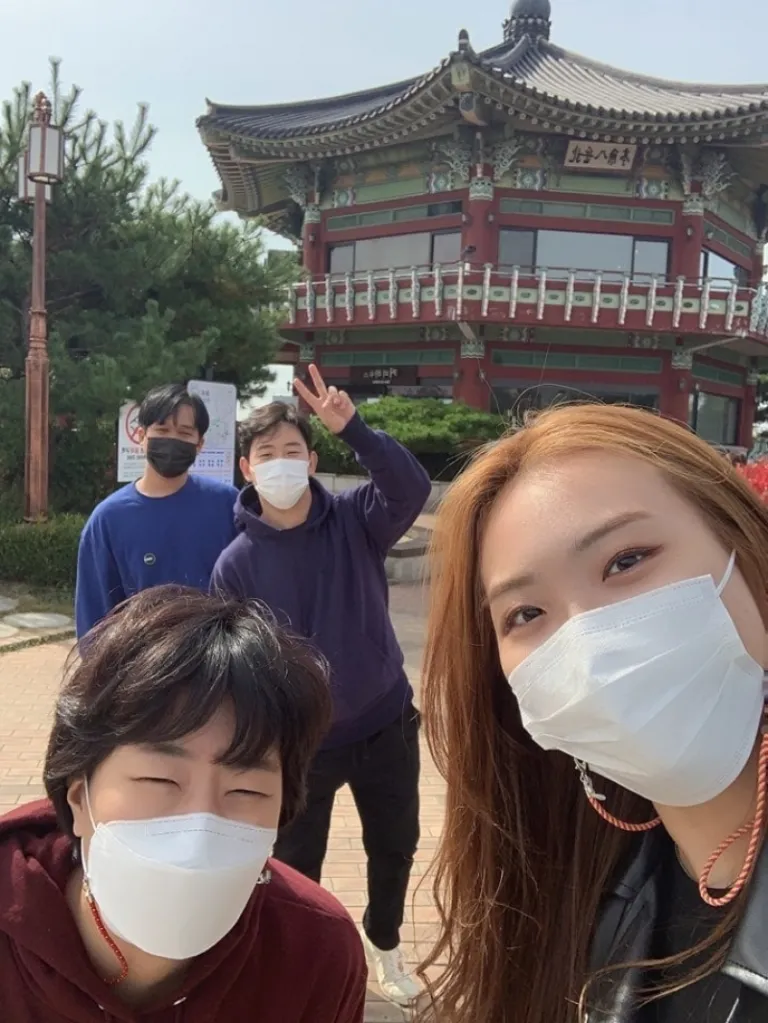
Uprooting your life to move to another country definitely isn’t easy. For this reason, it helps to seek out a community of supportive people who understand what it is you’re going through.
Having a small slice of home away from home can ease the transition of living in a foreign place. That’s why Kevin suggests a visit to the Hyehwa-dong neighbourhood for Filipinos.
“There’s a vibrant Filipino community in Hyehwa-dong,” Kevin says. “Unfortunately, I’ve only visited once due to COVID-19, but if you miss food from home or just want to feel the Filipino spirit, it’s a good place to visit!”

Note: For our Filipino readers who are interested in working and living in South Korea, we encourage you to visit this country as a tourist first and explore what it has to offer. Check out our South Korea visa guide to increase your chances of getting approved for a tourist visa.
Also read: These Pinoys Share Why They Keep Coming Back to Japan, Korea, and Taiwan for More
For those who love South Korea, this could be the opportunity of a lifetime. If you have any experiences about what it’s like to live or work in South Korea that you’d like to share with us, we would be happy to hear your story. Just drop us a message on our official Facebook or Instagram pages!
This article was originally published on TripZilla.
Published at
About Author
Tiffany Conde
Subscribe our Newsletter
Get our weekly tips and travel news!
Recommended Articles
10 Bantayan Island Resorts, Hotels, and Rentals for Your Tropical Escape 10 Best Mountain Cafes in the Philippines for Your Peak Coffee Experience Coffee date on the mountains, anyone?
10 Family Outing Ideas in Metro Manila Under ₱500 Looking for a weekend bonding with the family under ₱500? Head to these places, pronto!
10 Long Weekends in the Philippines in 2023 Book those flights ASAP.
Top 10 Post-Breakup Destinations for Healing and Self-Rediscovery Ready for a solo travel?
Latest Articles
Dingalan Travel Guide: Nature Spots to Discover Now Underrated coastal gem in Aurora
What to Eat in Bicol: Iconic Dishes and Treats, and Unique Pasalubong You’ll Love Spice up your foodie adventure with iconic Bicol dishes and must-try pasalubong!
Top Travel Trends in the Philippines for 2025 New spots, tips, and trends
New UK Adventure Park to Visit in Devon and Cornwall Fun countryside escape near London
Ultimate Camarines Norte Travel Guide: Waterfalls, Beaches, and More From surfing to secret waterfalls, Camarines Norte is your next escape!
